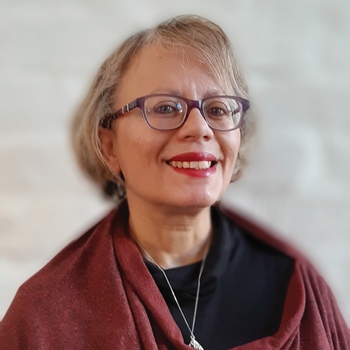 The prestigious award would launch a rewarding journey into the rich and multi-layered history of South Africa’s ‘first nation’ people, the Khoisan.
The prestigious award would launch a rewarding journey into the rich and multi-layered history of South Africa’s ‘first nation’ people, the Khoisan.
Passionate about music education policy, multicultural education and democratic citizenship, Prof de Villiers had realised that little was being said about the people who call themselves South Africa’s first nation – the Khoisan – in the music curriculum.
As a result, she responded to a call from ISME-SEMPRE (Society for Education, Music and Psychology Research) for applications to fund research on the music culture of first nations. The successful proposal was awarded $3000 (approximately R42 000) for a research project titled, “Rewriting the decolonising and indigenising narrative: A South African case study”.
“The indigenising project is looking at how music from the culture of all the South African people can be incorporated into the curriculum,” says Prof De Villiers.
“While I’ve been reading on this journey, it’s almost been like being on a treasure hunt. You don’t find all the information in one place, because some of the people have died and there are also very few people who even speak these indigenous languages.
“So, we cannot recreate what happened before, because there isn’t a generation passing something on to the next generation.”
Exciting discovery
But then, Prof De Villiers discovered the Khoisan revivalist movement which, like her, wants to reclaim and learn about all of their ancestry.
“This research is almost saying, ‘what happened in the past?’ – and what can we include today to make it topical, and for people to be interested in it.”
There is very little evidence of the music itself, as there were no recordings when people started writing it.
However, fragments of the music – and some instruments – still exist.
Taking notes
Recreating the instruments of the past is part of the process, explains Prof De Villiers.
“I find it so interesting because there are so many facets. There are musical instruments that one can recreate and there are people who look at the description of an instrument and actually make it, using the kind of material and methods that people would have used in the past. I have somebody making such instruments.”
She has had two different types of musical bow made for her, one with a resonator and the other without one. She also has Springbok horns and leg rattles.
“I am using those as part of the research. To sing the music or perform the music in a group, one has to try and use traditional instruments to get the sound as it might have been.”
Prof De Villiers is due to present her online research findings at the 35th ISME World Conference in Brisbane, Australia, in July this year. She also collaborated with Prof Menan du Plessis, extraordinary professor from Stellenbosch University for one of her ISME presentations and they have co-authored one presentation.
“The people I have interviewed for my research feel that they are getting a voice, they are being validated and they appreciate the efforts to actually be recognised”.